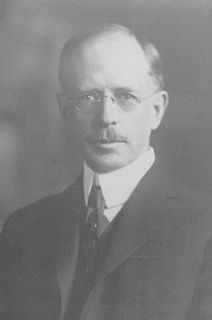
Glossolalia or speaking in tongues is a phenomenon in which people speak in languages unknown to them. One definition used by linguists is the fluid vocalizing of speech-like syllables that lack any readily comprehended meaning, in some cases as part of religious practice in which it is believed to be a divine language unknown to the speaker. Glossolalia is practiced in Pentecostal and charismatic Christianity as well as in other religions. The term derives from glōssais lalein, a Greek phrase used in the New Testament meaning "to speak in or with tongues [i.e., other languages]". (both of these scriptures use the word "glossa" which means "the language or dialect used by a particular people distinct from that of other nations".

In religion and theology, revelation is the revealing or disclosing of some form of truth or knowledge through communication with a deity or other supernatural entity or entities.

Dei verbum, the Second Vatican Council's Dogmatic Constitution on Divine Revelation, was promulgated by Pope Paul VI on 18 November 1965, following approval by the assembled bishops by a vote of 2,344 to 6. It is one of the principal documents of the Second Vatican Council, indeed their very foundation in the view of one of the leading Council Fathers, Bishop Christopher Butler. The phrase "Dei verbum" is Latin for "Word of God" and is taken from the first line of the document, as is customary for titles of major Catholic documents.
Sola Scriptura is a theological doctrine held by some Christian denominations that the Christian scriptures are the sole infallible rule of faith and practice.

Nontrinitarianism is a form of Christianity that rejects the mainstream Christian doctrine of the Trinity—the teaching that God is three distinct hypostases or persons who are coeternal, coequal, and indivisibly united in one being, or essence. Certain religious groups that emerged during the Protestant Reformation have historically been known as antitrinitarian, but are not considered Protestant in popular discourse due to their nontrinitarian nature.

Biblical inerrancy is the belief that the Bible "is without error or fault in all its teaching"; or, at least, that "Scripture in the original manuscripts does not affirm anything that is contrary to fact". Some equate inerrancy with biblical infallibility; others do not. The belief is of particular significance within parts of evangelicalism, where it is formulated in the "Chicago Statement on Biblical Inerrancy".

Biblical hermeneutics is the study of the principles of interpretation concerning the books of the Bible. It is part of the broader field of hermeneutics which involves the study of principles of interpretation for all forms of communication, nonverbal and verbal.

Biblical inspiration is the doctrine in Christian theology that the human authors and editors of Bible were led or influenced by God with the result that their writings many be designated in some sense the word of God.

In the Latter Day Saint movement, Confirmation, is an ordinance essential for salvation. It involves the laying on of hands and is performed after baptism. Through confirmation, the initiate becomes an official member of the church and receives the gift of the Holy Ghost. Baptism and confirmation are administered to persons at least eight years old. The ordinance corresponds to the confirmation rite in many other Christian faiths. Confirmations were first performed on April 6, 1830 at the organizational meeting of the Church of Christ.

Studies in the Scriptures is a series of publications, intended as a Bible study aid, containing seven volumes of great importance to the history of the Bible Student movement, and the early history of Jehovah's Witnesses.

Benajah Harvey Carroll, known as B. H. Carroll, was a Baptist pastor, theologian, teacher, and author.

Daniel Baird Wallace is an American professor of New Testament Studies at Dallas Theological Seminary. He is also the founder and executive director of the Center for the Study of New Testament Manuscripts, the purpose of which is digitizing all known Greek manuscripts of the New Testament via digital photographs.

In Christian scribal practice, nomina sacra is the abbreviation of several frequently occurring divine names or titles, especially in Greek manuscripts of Holy Scripture. A nomen sacrum consists of two or more letters from the original word spanned by an overline.
In Christian theology, the tripartite view (trichotomy) holds that humankind is a composite of three distinct components: body, spirit, and soul. It is in contrast to the bipartite view (dichotomy), where soul and spirit are taken as different terms for the same entity.

The 28 fundamental beliefs are the core beliefs of Seventh-day Adventist theology. Adventists are opposed to the formulation of creeds, so the 28 fundamental beliefs are considered descriptors, not prescriptors; that is, that they describe the official position of the church but are not criteria for membership. These beliefs were originally known as the 27 fundamental beliefs when adopted by the church's General Conference in 1980. An additional belief was added in 2005. The Seventh-day Adventist Bible Commentary is a significant expression of Adventist theological thought.

Seventh-day Adventists believe church co-founder Ellen G. White (1827–1915) was inspired by God as a prophet, today understood as a manifestation of the New Testament "gift of prophecy", as described in the official beliefs of the church. Her works are officially considered to hold a secondary role to the Bible, but in practice there is wide variation among Adventists as to exactly how much authority should be attributed to her writings. With understanding she claimed was received in visions, White made administrative decisions and gave personal messages of encouragement or rebuke to church members. Seventh-day Adventists believe that only the Bible is sufficient for forming doctrines and beliefs, a position Ellen White supported by statements inclusive of, "the Bible, and the Bible alone, is our rule of faith".
The Fundamentals: A Testimony To The Truth is a set of ninety essays published between 1910 and 1915 by the Testimony Publishing Company of Chicago. It was initially published quarterly in twelve volumes, then republished in 1917 by the Bible Institute of Los Angeles as a four-volume set. Baker Books reprinted all four volumes under two covers in 2003.

Canonical criticism, sometimes called canon criticism or the canonical approach, is a way of interpreting the Bible that focuses on the text of the biblical canon itself as a finished product. Brevard Childs (1923-2007) popularised this approach, though he personally rejected the term. Whereas other types of biblical criticism focus on the origins, structure and history of texts, canonical criticism looks at the meaning which the overall text -in its final form - has for the community which uses it.
Instrumentality is a theological theory that falls under the broader category of the prophetic model of biblical inspiration. Those who espouse the prophetic model consider the writers of all the books of the bible to have been inspired in the same way as prophets have been inspired by God to preach. This makes sense given that the vocation of the prophet and the vocation of the writer of Holy Scripture is more or less the same; they are called to communicate the message of God to a community that is in need of hearing it. Though, as Reginald-Garigou Lagrange, O.P. notes, a prophet can act based on direct revelation from God or from inspiration. The latter is what is relevant when it comes to biblical interpretation. This model of biblical inspiration played a dominant role in the Early Church and was fully and systematically explained by medieval theologians like St. Thomas Aquinas. Thomas discusses prophesy in Questions 171-174 of the Second Part of the Second Part of the Summa Theologica. Thomas uses earlier theologians, namely St. Augustine and Pope St. Gregory the Great, to support his argument. Jewish theologians such as Moses Maimonides also defended this model.
In Protestant theology, verbal plenary preservation ("VPP") is a doctrine concerning the nature of the Bible. While verbal plenary inspiration ("VPI") applies only to the original autographs of the Bible manuscript, VPP views that, "the whole of Scripture with all its words even to the jot and tittle is perfectly preserved by God in the apographs without any loss of the original words, prophecies, promises, commandments, doctrines, and truths, not only in the words of salvation, but also the words of history, geography and science; and every book, every chapter, every verse, every word, every syllable, every letter is infallibly preserved by the Lord Himself to the last iota so that the Bible is not only infallible and inerrant in the past, but also infallible and inerrant today ."
















